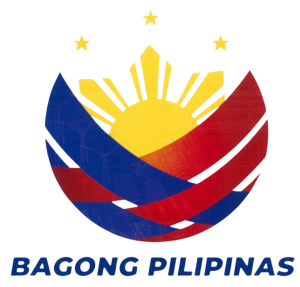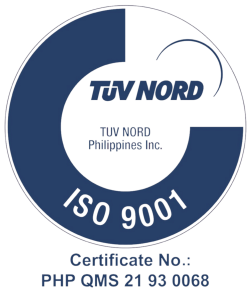The Northern Negros State College of Science and Technology, the sole state college in Northern Negros and the only science and technology state college in Negros Occidental, began with humble roots. Originally established as the Old Sagay Barangay High School (OSBHS) in 1970, its foundation was spearheaded by then Municipal Mayor Alfredo G. Marañon, Jr., Brgy. Capt. Pedro G. Katalbas, and Mr. Leopoldo Fernandez, who served as its first principal. Its pioneer graduates included ten students.
In 1978, the Old Sagay Barangay High School (OSBHS) was upgraded to a Municipal High School with Mrs. Priscilla L. Amar as the head-designate. In the same year, a significant milestone was achieved when Mayor Alfredo G. Marañon, Jr. and Dr. Elpidio M. Icamina, resident of the Iloilo State College of Fisheries (ISCOF), signed a historic Memorandum of Agreement. This agreement transformed OSBHS into an extension campus of ISCOF, with vital support from Congressman Narciso Monfort.
Additionally, 1978 marked the beginning of generous contributions from the government of Osterholt, West Germany, which provided books, equipment, and an eight-classroom building to enhance the school’s limited facilities. Over the subsequent years, this support continued with further donations, including a fishing boat and a five-hectare brackish-water fishpond located in Tabunan, Brgy. Taba-ao, Sagay City, Negros Occidental.
Five years later, the passage of B.P. 359 on March 3, 1983, authored and sponsored by then Assemblyman Alfredo G. Marañon, Jr., elevated the Municipal High School to the Iloilo State College of Fisheries-Sagay Branch. Prof. Pepito B. Bedia was appointed as its first Officer-in-Charge.
In 1985, the college introduced its first technical course in fisheries, the Diploma in Fishery Technology, with ten pioneering students attending evening classes. Under the leadership of Mr. Artemio A. Violeta, the college expanded its academic offerings in 1989 to include baccalaureate programs such as B.S. in Secondary Education with majors in Biology and General Science, and B.S. in Fisheries with a major in Aquaculture.
A year later, the college further diversified its B.S. in Fisheries degree by adding specializations in Fish Processing Technology, Marine Fisheries, and Coastal Resource Management. In 1990, Mrs. Wynne S. Silva took over as Officer-in-Charge, continuing the institution’s growth and development.
To further enhance the college’s development and meet the academic demands of the region, a Graduate Program was introduced in the second semester of the 1994-1995 school year. This program offered a Master of Arts in Educational Management with a major in Vocational Productivity and a Master in Public Administration. It was a consortium effort between the ISCOF Graduate Studies and Aklan State College of Agriculture (ASCA), coordinated by Mr. Alberto A. Silva.
Simultaneously, the college launched its own graduate program, offering a Master in Fisheries Technology with a major in Aquaculture. Additionally, a new baccalaureate degree, the Bachelor of Science in Marine Transportation, was established through the efforts of then Congressman Manuel H. Puey and College President Dr. Elpidio A. Locsin, Jr.
Although the ISCOF-ASCA Graduate Studies Consortium Program was terminated in 1996, the college continued to offer it as one of its programs. Two years later, in 1998, the college introduced a post-graduate program, offering a Doctor in Rural Development with various fields of specialization.
Upon becoming an independent state college, the institution’s management was placed under its own Board of Trustees and College President. Dr. Ephraim R. Estacion, Jr. served as the first Officer-in-Charge, starting in July 1998. He was succeeded by Dr. Manuel R. Penachos, Jr., who was appointed Officer-in-Charge in June 1999 and later became the first official President. Unfortunately, due to health reasons, Dr. Penachos resigned eleven months into his tenure.
His resignation led to the appointment of Mac Arthur D. Beldia, Ph.D., who previously served as Vice President for Administration at Panay State Polytechnic College in Pontevedra, Capiz. Dr. Beldia was designated Officer-in-Charge on October 25, 2000. In January 2001, the Search Committee for the Presidency (SCP) was convened, and seven candidates participated in the selection process. On January 25, 2001, during its 9th Regular Board Meeting, the Board of Trustees reviewed the SCP’s four finalists and unanimously voted Dr. Beldia as the second President of the college. His appointment took effect immediately on January 25, 2002.
Dr. Mac Arthur D. Beldia was sworn in as College President on April 17, 2001, by Chairman Esther Albano-Garcia of the Commission on Higher Education at the DAP Building, San Miguel Avenue, Ortigas Center, Pasig City. On July 18, 2001, Dr. Beldia was formally installed as the Second President in an investiture ceremony held at the college quadrangle. The event was attended by Members of the Board of Trustees, Presidents of various SUCs in the region, local government officials, and heads of government agencies.
The year 2001 was particularly significant for the college. It received a generous donation of a seven-hectare lot located at Sitio Tan-ao, Barangay Poblacion 2, Sagay City, from the City Government of Sagay. The Deed of Donation was officially signed by Hon. Fortunato S. Javelosa, City Mayor of Sagay, and Dr. Mac Arthur D. Beldia, President of the college, in a ceremony on November 29, 2001. This event was witnessed by Members of the Board of Trustees, City Officials, Members of the Sangguniang Panlungsod, faculty, staff, and students. The donated lot will serve as an additional site for the college, envisioned by the college president as the future home of the Agriculture and Information Technology Departments and the Research, Development, and Extension (RD&E) Center. On August 24, 2002, Dr. Victor E. Navarra from the Commission on Higher Education, Regional Office 6, was designated by the Board of Trustees as Officer-in-Charge of the Office of the College President, due to the suspension of the college president.
On January 1, 2004, Rogelio T. Artajo assumed the role of the third president of the college. During his eight-year tenure, he successfully facilitated the accreditation of most of the college’s programs, formed a consortium with the Cebu State College of Science and Technology, allowing faculty to conveniently pursue master’s and doctoral degrees, and established the only school of nursing in Northern Negros, which is also the only government-run school of nursing on the island of Negros. Additionally, he oversaw the renovation of the administration building and initiated the first Tripartite Forum, providing students a platform to voice their concerns to the faculty and administration. Under Dr. Artajo’s leadership, the college introduced several new programs, including Doctor in Technology Management (Ph.D.TM), Master in Nursing (MN), Master in Information Technology (MIT), Master in Agricultural Technology (MAT), Bachelor of Science in Nursing (BSN), Bachelor of Science in Criminology (BSCrim), AB English, and Bachelor of Management Technology (BMT). The college also gained a strong reputation for its performance in the PRC licensure examinations for its Nursing and Criminology programs, as well as for its research and development initiatives and community extension services.
From the outset of his administration, Dr. Artajo’s commitment to quality education and accreditation came to fruition. His presidency was marked by vigorous efforts to establish cooperative relationships with government agencies and other state colleges and universities. These efforts elevated the college’s SUC Level from Level 0 to Level II and fulfilled his vision of making the college the only ISO 9001:2008 certified state college in the province.
On June 25, 2012, Dr. Romulo T. Sisno was appointed as the 4th president of the college. His administration’s primary mission was to illuminate the NONESCOST Road to 2016, focusing on several key objectives: rationalizing academic programs and instructional methods, enhancing the learning environment, employing strategies to increase enrollment in certain courses, improving licensure examination pass rates, expanding research and extension programs, enhancing the human resource management system, expanding student services, increasing the college’s landholdings for future development, and generating additional resources to improve the college’s services. In 2012, NONESCOST also became the first ISO 9001:2008 certified institution in Region VI.
On July 10, 2020, Renante A. Egcas, Ph.D., was appointed as the fifth president of the college. President Egcas envisions transforming NONESCOST into a glocally recognized university within the next five years. His vision includes offering distinctively-niched academic programs, engaging in dynamic and excellent instruction, research, extension, and governance. He aims to produce graduates who are locally minded, globally competitive, innovative, resilient, and equipped with entrepreneurial skills.
The articulation of his roadmap lives in the ideals of an UPGRADEd NONESCOST. The acronym UPGRADE encapsulates a comprehensive vision for the future. “U” stands for University, highlighting the central role of higher education institutions. “P” represents People, emphasizing the importance of individuals within the academic community. “G” covers Governance, Production, and Resource Generation, underscoring the need for effective management and sustainable resource utilization. “R” signifies Research, Technology, and Innovation, reflecting the commitment to advancing knowledge and technological progress. “A” stands for Academic Excellence, indicating a dedication to maintaining high educational standards. “D” involves the Development and Improvement of Sites and Facilities, focusing on enhancing the physical and operational infrastructure. Finally, “E” represents Extension, Linkages, and Internationalization, pointing to the importance of external engagement and global collaboration. Together, these elements form a strategic framework aimed at fostering a thriving and dynamic educational environment.
During the COVID-19 pandemic, the college immediately adopted alternative modes of learning and transitioned to blended learning methodologies in order to ensure the continuity of learning. The college was also one of the first academic institutions that was allowed to revert to face-to-face classes after it successfully complied with the retrofitting requirements of the local COVID-19 Task Force, the Department of Health and the Commission on Higher Education. The college implemented full face-to-face classes for all of its academic offerings in the first semester of AY 2022-2023, two years after the college closed down due to the pandemic.
As NONESCOST strives to provide excellent education, its unwavering commitment spans across all facets of its operations—research, extension, instruction, and governance. This dedication aims to elevate NONESCOST into a glocally recognized higher education institution.
On June 18, 2022, Republic Act No. 11859, principally authored by former 2nd District Rep. Leo Rafael Cueva, was enacted, converting the Northern Negros State College of Science and Technology in Sagay City, Negros Occidental, into the “State University of Northern Negros” (SUNN). This transformation seeks to reshape knowledge management and reinforce SUNN’s stature locally and globally.
Following an onsite validation conducted on November 15-18, 2022, by a CHED Composite Team and the Office of Institutional Quality Assurance and Governance (OIQAG) of the Commission on Higher Education, NONESCOST fulfilled the requirements on programs and enrollment, faculty profile, research, learning resources and support structures, linkages and outreach activities and program-specific requirements outlined in CHED Memo Order No. 46, s. 2012 for university conversion.
One year and seven months after the enactment of RA 11859, the Commission on Higher Education officially approved SUNN’s conversion on January 22, 2024. Subsequently, the SUNN Board of Regents declared its university status on March 19, 2024. On April 26, 2024, the university celebrated its inauguration, as well as the investiture of Dr. Egcas, the last college president of NONESCOST and the first university president of the State University of Northern Negros.
As history continues to be shaped by those who walk through the university’s doors, the institution stands poised to further demonstrate its value, realize its vision, fulfill its critical mandate, and achieve its objectives, all in pursuit of the highest ideals of education.




